У Луцьку відбулася публічна лекція «Національна політика Речі Посполитої»
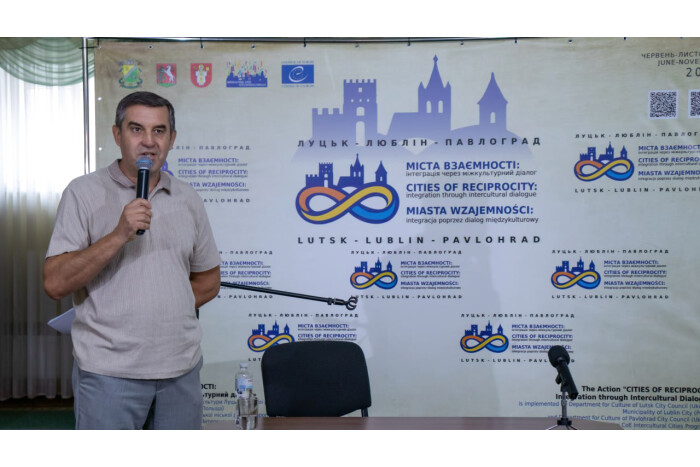
23 вересня у Палаці культури міста Луцька відбулася публічна лекція з історії національних спільнот Луцька «Національна політика Речі Посполитої». Лекція є частиною освітнього заходу «Луцьк багатоголосий: мова, історія і традиції спільнот Луцька».
Лектором заходу виступив Юрій Крамар, доктор історичних наук, професор кафедри всесвітньої історії Волинського національного університету імені Лесі Українки.
Подія зібрала більше 60 учасників, серед яких – студенти, внутрішньо переміщені особи, представники національних спільнот, освітяни, діячі культури та засоби масової інформації.
У ході лекції було розглянуто низку ключових історичних питань. Зокрема, йшлося про польські землі наприкінці ХІХ – на початку ХХ століття, а також про етнічний склад населення міжвоєнної Польщі. Окремо було висвітлено адміністративний поділ Польщі у 1920–1930-х роках та представлено адміністративну мапу Волинського воєводства цього періоду. Значна увага була приділена національній та конфесійній структурі населення Волинського воєводства за даними перепису 1921 року, згідно з якими більшість становили українці та поляки, поруч з якими проживали євреї, чехи, німці та інші. Також було розглянуто мовну структуру населення Волинського воєводства за переписом 1931 року.
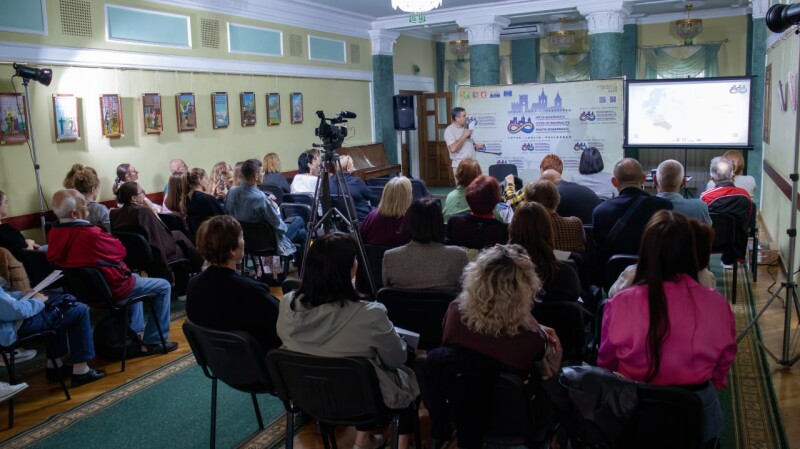
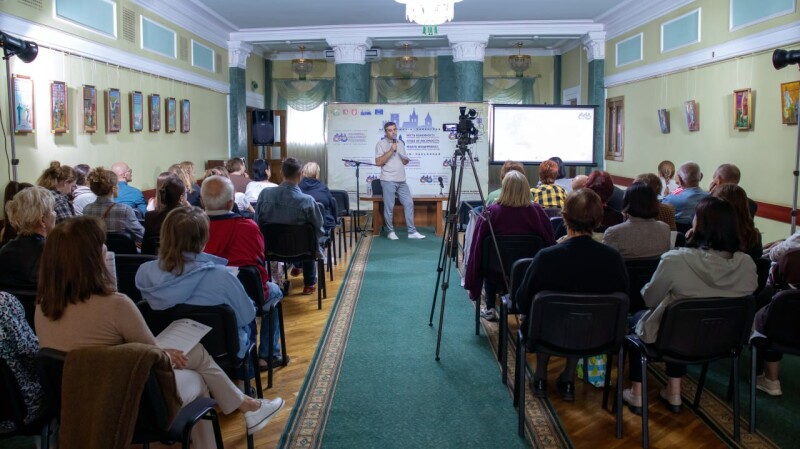
Окрема увага була приділена особливостям професійної діяльності представників різних національностей на Волині на початку ХХ століття, історії німецької та чеської громад, а також культурній спадщині, яка збереглася у Луцьку до сьогодні.
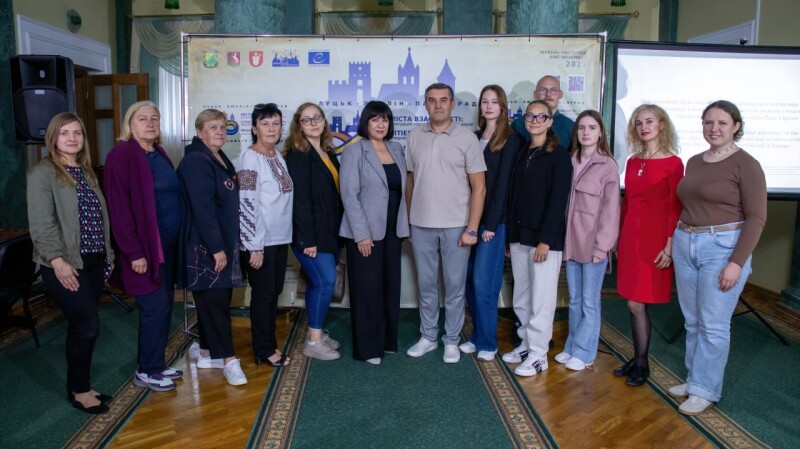
Учасники заходу ознайомилися з діяльністю ідеологів націонал-демократії – Романа Дмовського, Станіслава Грабського, Йоахіма Бартошевича, а також з політичною діяльністю начальника Польської держави Юзефа Пілсудського. Під час лекції було висвітлено тему українських народних шкіл у Володимирі та Устилузі, діяльність волинського воєводи Генрика Юзевського та «Програмні тези державної політики», оприлюднені воєводою А. Новаком у 1939 році.
Захід продемонстрував актуальність вивчення історії міжнаціональних відносин та їх впливу на формування сучасної ідентичності Волині.
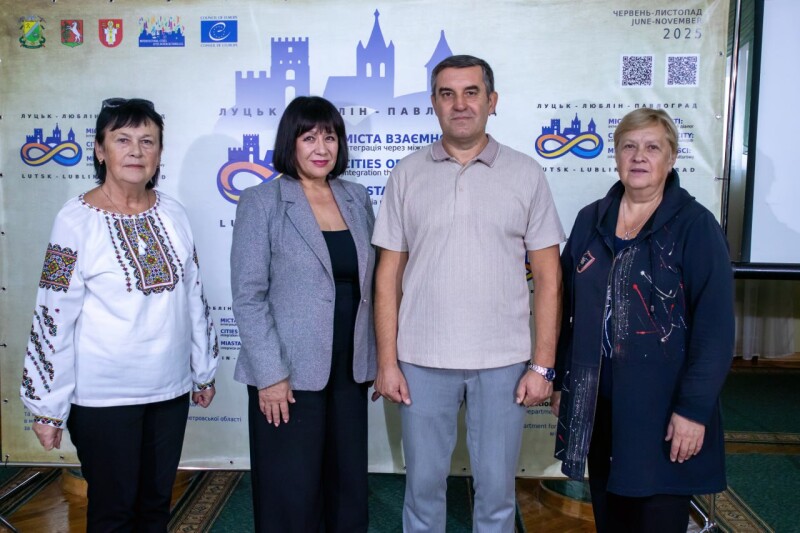
Лекція відбулася в межах проєкту «Міста взаємності: інтеграція через міжкультурний діалог», який реалізується департаментом культури Луцької міської ради у партнерстві з містами Люблін (Польща) та Павлоград (Україна), за підтримки Програми Ради Європи «Інтеркультурні міста» (ICC) та фінансується Радою Європи.
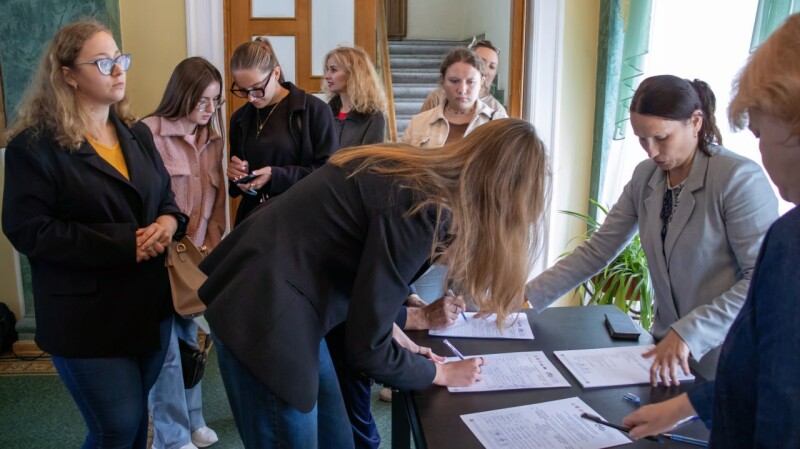
Цей допис було підготовлено за фінансової підтримки Ради Європи. Висловлені тут погляди жодним чином не можна вважати такими, що відображають офіційну думку Ради Європи.
Департамент культури
A Public Lecture “The National Policy of the Polish-Lithuanian Commonwealth” Held in Lutsk
On 23 September, a public lecture on the history of Lutsk’s national communities “The National Policy of the Polish-Lithuanian Commonwealth” took place at the Lutsk Palace of Culture. The lecture was part of the educational event “Polyphonic Lutsk: the Language, History and Traditions of Lutsk Communities”.
The lecturer was Yuriy Kramar, Doctor of Historical Sciences, Professor at the department of world history of Lesya Ukrainka Volyn National University.
The event gathered over 60 participants, including students, internally displaced persons, representatives of national communities, educators, cultural figures, and media representatives.
The lecture addressed a number of key historical topics. In particular, it focused on Polish lands at the end of the 19th and the beginning of the 20th centuries, as well as the ethnic composition of the population of interwar Poland. Special attention was given to the administrative division of Poland in the 1920s–1930s and the administrative map of Volyn Voivodeship during this period. The lecture highlighted the national and confessional structure of the Volyn Voivodeship population according to the 1921 census, which showed that Ukrainians and Poles constituted the majority, alongside Jews, Czechs, Germans, and others. The linguistic structure of the Volyn Voivodeship population, based on the 1931 census, was also presented.
Special attention was given to the professional activities of various national groups in Volyn in the early 20th century, the history of the German and Czech minority communities, and the cultural heritage of Lutsk that has endured to this day.
Participants learned about the activities of the ideologists of national democracy – Roman Dmowski, Stanisław Grabski, and Joachim Bartoszewicz, as well as the political activities of the Head of the Polish State, Józef Piłsudski. The lecture also covered the topic of Ukrainian public schools in Volodymyr and Ustyluh, the role of Volyn Voivode Henryk Józewski, and the “Programmatic Theses of State Policy” published by Voivode A. Nowak in 1939.
The event underscored the relevance of studying the history of interethnic relations and their influence on the formation of Volyn’s modern identity.
The lecture was held within the framework of the project “Cities of Reciprocity: Integration through Intercultural Dialogue”, implemented by the Department for Culture of Lutsk City Council in partnership with the cities of Lublin (Poland) and Pavlohrad (Ukraine), with the support of the Council of Europe’s Intercultural Cities Programme (ICC) and with funding from the Council of Europe.
This publication was prepared with the financial support of the Council of Europe. The views expressed herein can in no way be taken to reflect the official opinion of the Council of Europe.
